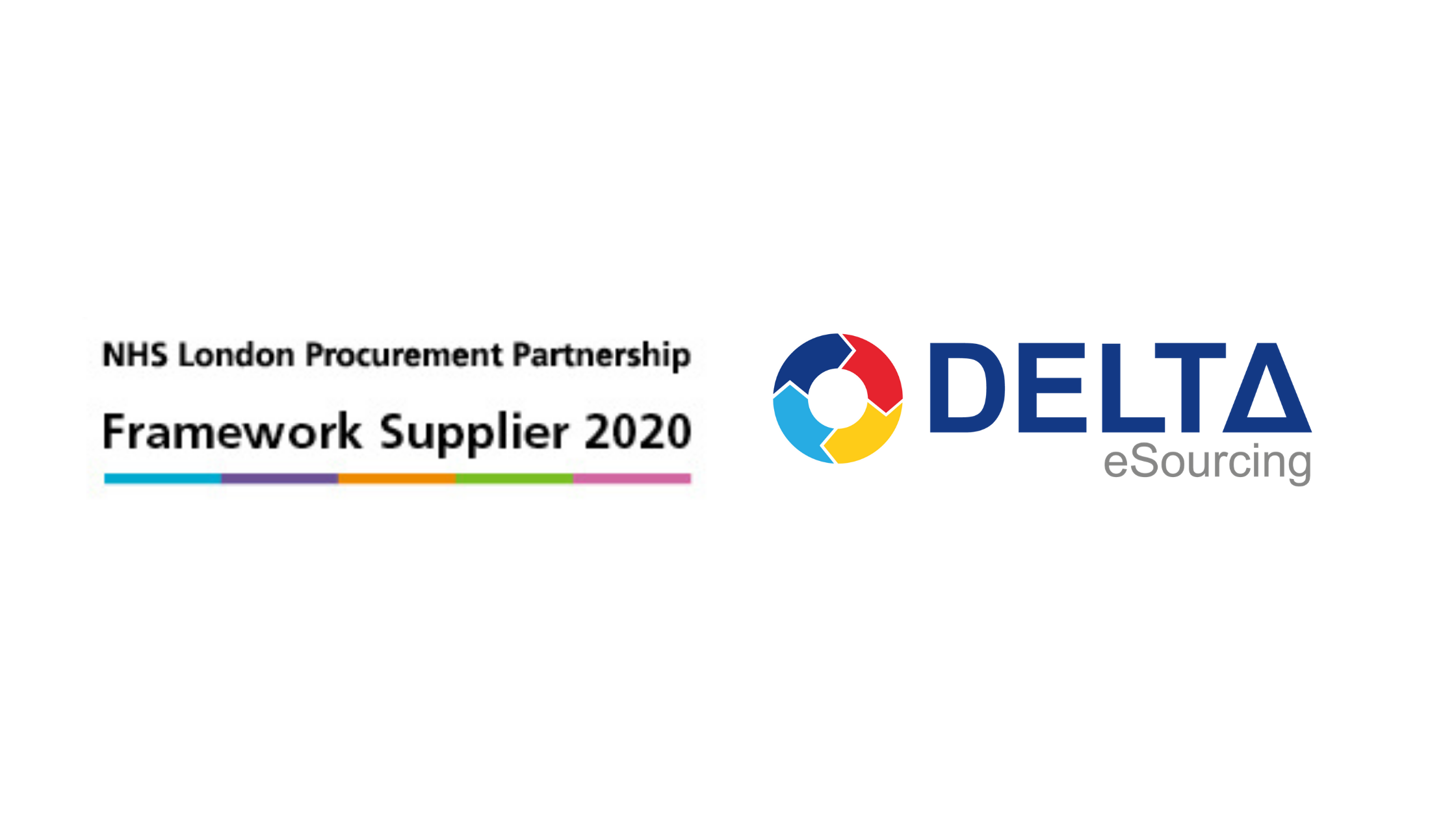
2021 is here. There are many cyber security and procurement predictions for the new year. Some of the prediction trends are not new or revolutionary,

Delta’s eSourcing solution is used and trusted by over 500 UK public sector organisations and by approximately 100,000 active suppliers. Delta offers insightful advice for using the e-tendering portal and consistently supports customers.
The fully managed and supported service is based on the core
principles of community building, collaboration and transparency for the enablement of supply chains, commissioning, needs analysis and the management of competitive tender exercises.








Delta eSourcing is a web-based service that provides suppliers the opportunity to respond to opportunities from hundreds of public sector bodies.
Delta eSourcing is a cutting-edge, web-based service which allows buying organisations to manage tenders, suppliers and contracts in a single solution.
Lorem ipsum dolor sit amet, consetetur sadipscing elitr, sed diam nonumy eirmod tempor invidunt ut labore et dolore magna aliquyam erat, sed diam voluptua. At vero eos et accusam et justo duo dolores et ea rebum. Stet clita kasd gubergren, no sea takimata sanctus est Lorem ipsum dolor
Lorem ipsum dolor sit amet, consetetur sadipscing elitr, sed diam nonumy eirmod tempor invidunt ut labore et dolore magna aliquyam erat, sed diam voluptua. At vero eos et accusam et justo duo dolores et ea rebum. Stet clita kasd gubergren, no sea takimata sanctus est
“Derby Homes have been using Delta eSourcing for a number of years now. The system is comprehensive, straightforward and reliable; expired procurement’s are well archived; the members of staff that we have dealt with have all been very professional and helpful, and their additional support in helping us to bring about a successful Supplier Open Day recently was invaluable.”
“E-act have been using the Delta E-sourcing platform for 2 years. The system itself is very intuitive, minimal user training is required. The helpdesk are always on hand for any queries that do arise. We intend to roll this out to the wider business ASAP so they can also reap the rewards! The platform itself is very transparent, it also allows us to centralise information, whilst retaining local ownership where required.”
“Since adopting the Delta eSourcing suite 18 months ago, Delta has proved to be a user friendly and cost effective electronic tendering system. Offering excellent value for money, the functionality has enabled the University to streamline procedures, increase transparency and empower key stakeholders.”



A supplier account is free of charge and allows your organisation to bid for opportunities available on the Delta platform. The key features of a Delta supplier account are:

2021 is here. There are many cyber security and procurement predictions for the new year. Some of the prediction trends are not new or revolutionary,

Procurement Update December 2020
Procurement has suddenly become very interesting, in the run-up to the end of the Transition period on 31st December. Whether you are a buyer or

Delta eSourcing: an official NHS LPP supplier
We are pleased to confirm that our service has won a place on the NHS LPP framework. Delta eSourcing provides its public sector clients with

2021 is here. There are many cyber security and procurement predictions for the new year. Some of the prediction trends are not new or revolutionary,

Procurement Update December 2020
Procurement has suddenly become very interesting, in the run-up to the end of the Transition period on 31st December. Whether you are a buyer or

Delta eSourcing: an official NHS LPP supplier
We are pleased to confirm that our service has won a place on the NHS LPP framework. Delta eSourcing provides its public sector clients with

2021 is here. There are many cyber security and procurement predictions for the new year. Some of the prediction trends are not new or revolutionary,

Procurement Update December 2020
Procurement has suddenly become very interesting, in the run-up to the end of the Transition period on 31st December. Whether you are a buyer or

Delta eSourcing: an official NHS LPP supplier
We are pleased to confirm that our service has won a place on the NHS LPP framework. Delta eSourcing provides its public sector clients with

2021 is here. There are many cyber security and procurement predictions for the new year. Some of the prediction trends are not new or revolutionary,

Procurement Update December 2020
Procurement has suddenly become very interesting, in the run-up to the end of the Transition period on 31st December. Whether you are a buyer or

Delta eSourcing: an official NHS LPP supplier
We are pleased to confirm that our service has won a place on the NHS LPP framework. Delta eSourcing provides its public sector clients with

2021 is here. There are many cyber security and procurement predictions for the new year. Some of the prediction trends are not new or revolutionary,

Procurement Update December 2020
Procurement has suddenly become very interesting, in the run-up to the end of the Transition period on 31st December. Whether you are a buyer or

Delta eSourcing: an official NHS LPP supplier
We are pleased to confirm that our service has won a place on the NHS LPP framework. Delta eSourcing provides its public sector clients with
Our case studies are success stories that make the case for Delta eSourcing. They provide real examples of our services and include eTendering services, Online Pre-Qualification Questionnaires, Contract Management and Supplier Engagement services.
